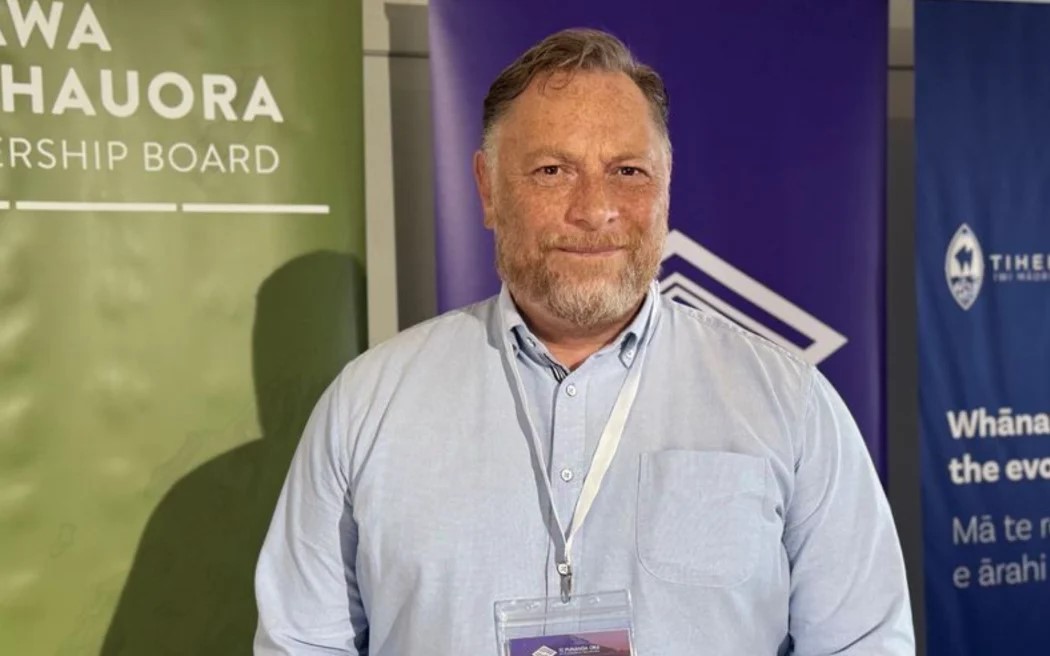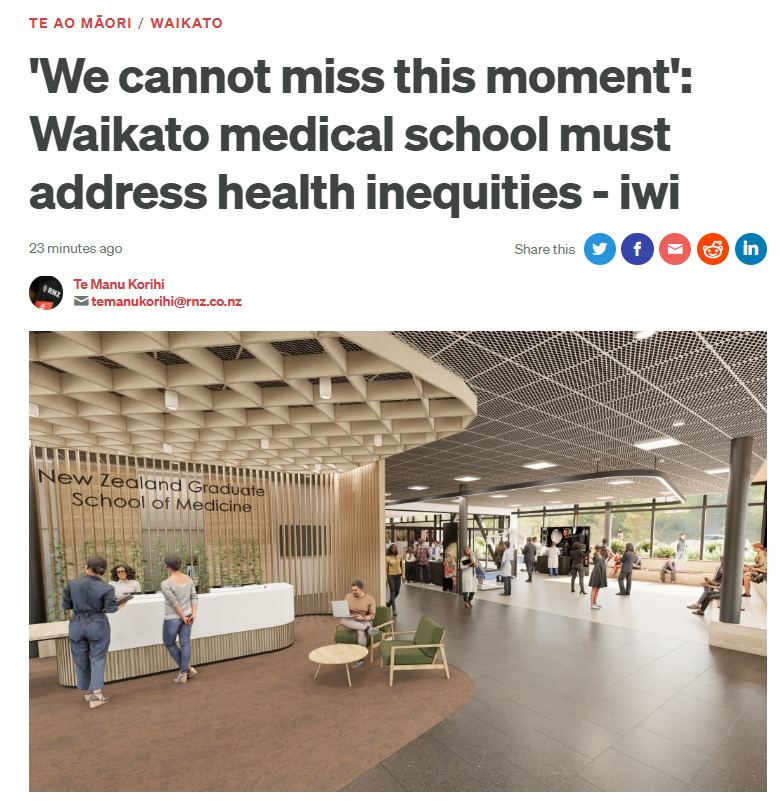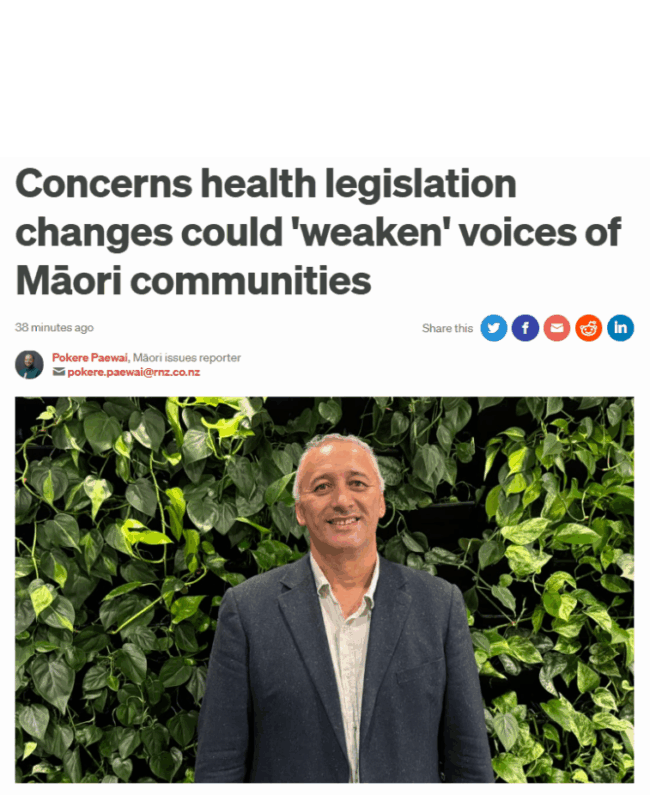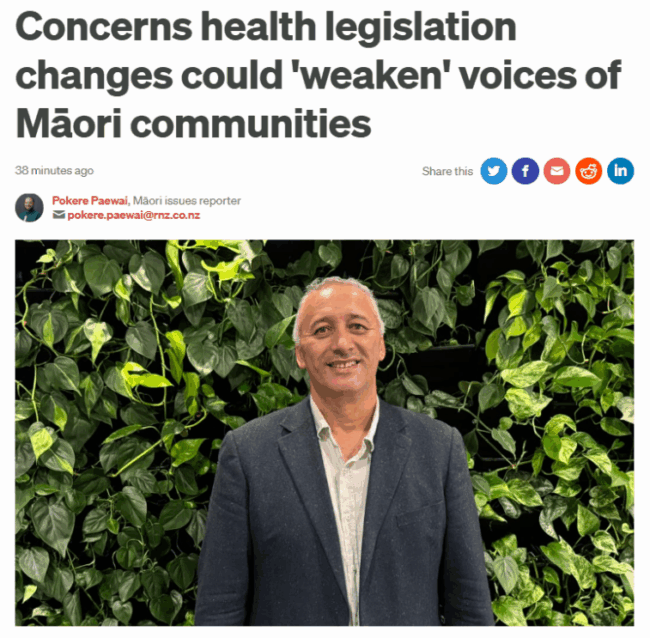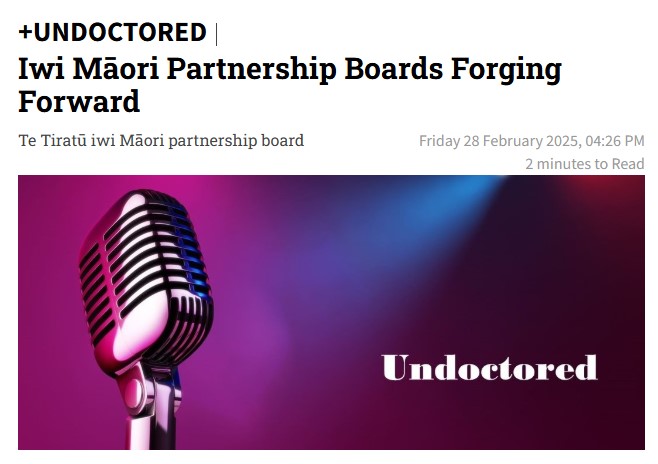Iwi Māori Partnership Boards concerned their role minimised under Pae Ora Act changes
Photo: Te Manawa Taki IMPB collective member, Te Taura Ora o Waiariki Chair Hingatu Thompson
RNZ reports about the unified stance of all 15 Iwi Māori Partnership Boards (IMPBs) coming together in Taranaki for a two-day National Hui, expressing concern that proposed changes to the Pae Ora (Healthy Futures) Act would diminish their role in New Zealand’s health system. Te Tiratū Iwi Māori Partnership Board shares this opposition, highlighting that local, iwi-led decision-making and accountability are essential to improving Māori health outcomes.
Leaders at the hui said that the proposed amendments risk silencing Māori voices, removing direct iwi oversight, and limiting the ability to deliver whānau-centred health solutions. IMPBs were established under Te Tiriti o Waitangi principles to ensure Māori engagement with the Crown, guide local health strategies, and address systemic inequities such as lower life expectancy and poorer outcomes for Māori.
The hui highlighted concerns over four key areas: maintaining Te Tiriti protections in legislation, ensuring the Hauora Māori Advisory Committee is accountable to iwi, retaining a Māori health strategy, and preserving the critical role of IMPBs in regional health planning. Te Tiratū reinforced that strong local partnerships and culturally responsive approaches are vital to achieving equity and improving Māori health.
'We cannot miss this moment': Waikato medical school must address health inequities - iwi
Te Tiratū Iwi Māori Partnership Board welcomes the Government’s $82.85 million investment in the new medical school at the University of Waikato, due to open in 2028 with an initial intake of 120 students.
Representing 114,000 whānau Māori in the region, Te Tiratū says this is a once-in-a-generation opportunity to tackle long-standing health inequities and workforce shortages—especially for rural, Māori and underserved communities.
Co-chair Tipa Mahuta emphasises that the school must embed Māori health workforce development, cultural safety, and equity from the ground up. “Cultural safety is not optional—it is essential for trust, clinical excellence, and better health outcomes.”
Co-chair Hagen Tautari adds, “A third medical school must reflect a culturally grounded, equity-driven model that serves those most in need.”
Te Tiratū stands ready to partner with Te Whatu Ora, Hauora Māori Directorate, the University of Waikato, iwi and hapū to shape a future-focused medical school that delivers for Māori.
Concerns raised over proposed health legislation amendments
Photo: Te Tiratū Iwi Māori Partnership Board Co-chair Hagen Tautari
A collective of 15 Iwi Māori Partnership Boards (IMPBs), including Te Tiratū Iwi Māori Partnership Board, has voiced strong concerns that upcoming amendments to the Pae Ora (Healthy Futures) Act may dilute local Māori influence and centralise health decision‑making in Wellington
Health Minister Simeon Brown’s proposed changes would reshape IMPBs from local decision-makers into advisory bodies, shifting their role to providing input via the Hauora Māori Advisory Committee (HMAC) rather than engaging directly in service design.
Hagen Tautari, Co‑Chair of Te Tīratu IMPB (Waikato region), warns that removing IMPBs’ autonomy threatens the authentic voice of whānau and undermines hard-won local gains. While welcoming the Minister’s commitment to equitable and timely healthcare, Tautari stresses that progress for Māori health is rooted in partnership and community-led design under Te Tiriti — not top-down governance.
The IMPBs have formally submitted their concerns in a letter to the Minister, emphasising that any reform must align with Treaty obligations by maintaining local influence, community engagement, and regional mana to achieve genuine equitable outcomes.
Experts on why bowel cancer screening changes are a concern
Te Tiratū iwi Māori partnership board
Friday 28 February 2025, 04:26 PM
2 minutes to Read
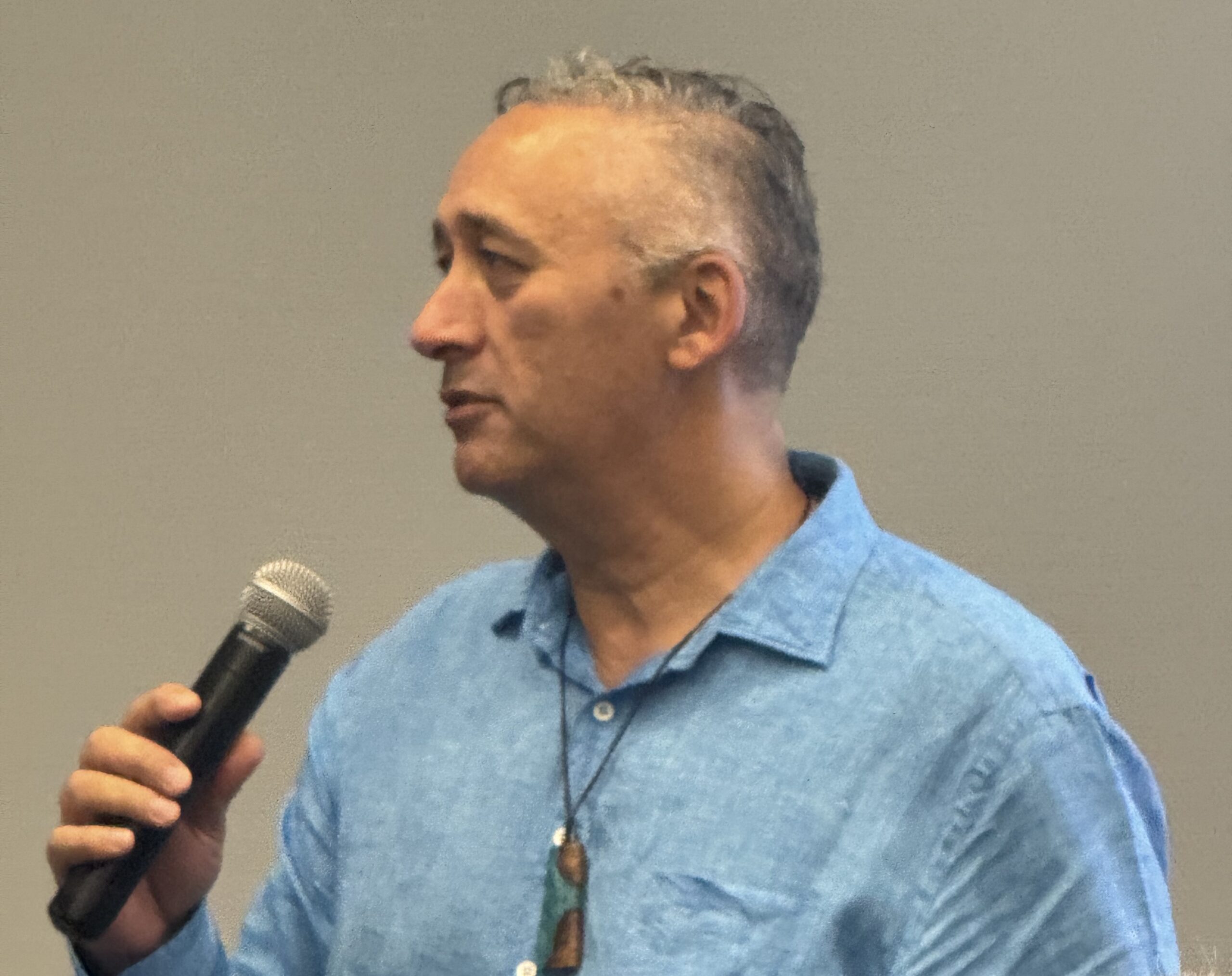
Government plans to lower the age for free bowel cancer screening for all New Zealanders by “redirecting” money previously set aside to lower the age for Māori and Pasifika has been described as “disappointing”.
“Screening is an essential tool for prevention and early detection, and expanding access will definitely save lives,” co-chair Hagen Tautari said.
“However, what we don’t want is to leave our people who are high-risk behind as they face substantially poorer health outcomes. What we need is an easier diagnostic process that removes systemic barriers.”
